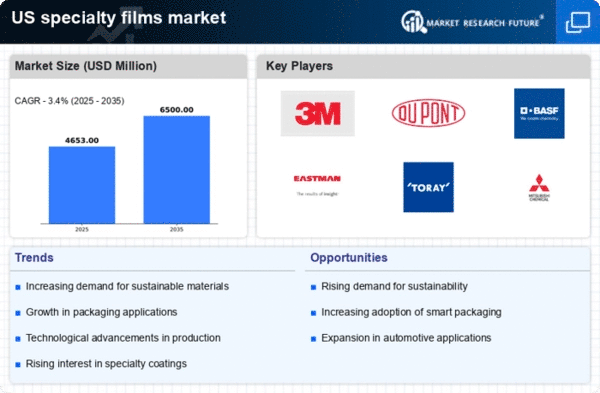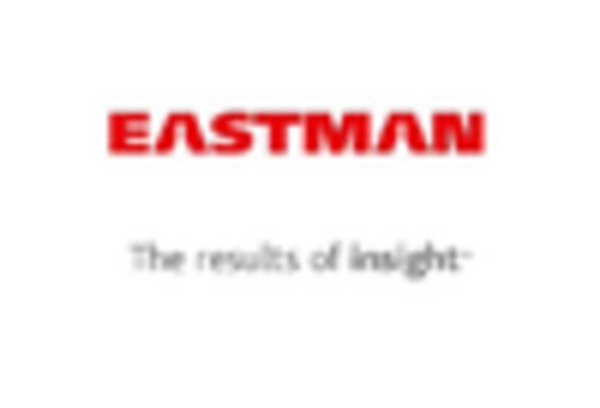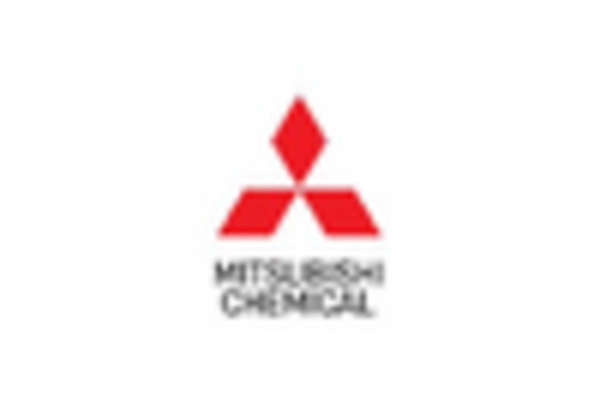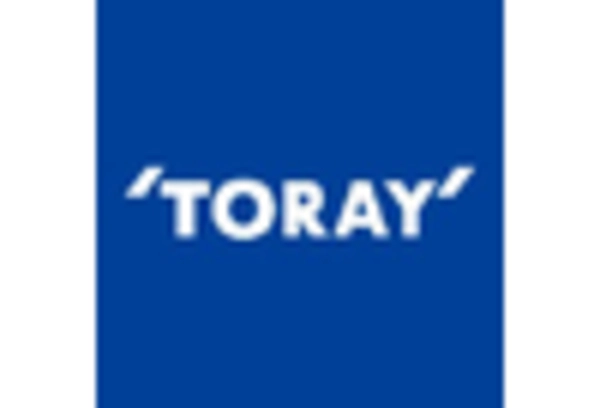The specialty films market is currently characterized by a dynamic competitive landscape, driven by innovation, sustainability, and technological advancements. Key players such as 3M (US), DuPont (US), and Eastman Chemical (US) are actively shaping the market through strategic initiatives. 3M (US) focuses on enhancing its product portfolio with advanced materials, while DuPont (US) emphasizes sustainability in its operations, aiming to reduce environmental impact. Eastman Chemical (US) is leveraging digital transformation to optimize its manufacturing processes, thereby improving efficiency and reducing costs. Collectively, these strategies contribute to a competitive environment that prioritizes innovation and responsiveness to market demands.In terms of business tactics, companies are increasingly localizing manufacturing to enhance supply chain resilience and reduce lead times. The market structure appears moderately fragmented, with several players vying for market share. However, the influence of major companies is significant, as they set industry standards and drive technological advancements. This competitive structure fosters an environment where smaller firms can innovate but also face challenges in scaling their operations effectively.
In October 3M (US) announced a partnership with a leading renewable energy firm to develop sustainable specialty films aimed at reducing carbon emissions. This strategic move underscores 3M's commitment to sustainability and positions the company as a leader in eco-friendly solutions. The collaboration is expected to enhance 3M's product offerings while appealing to environmentally conscious consumers, thereby strengthening its market position.
In September DuPont (US) launched a new line of specialty films designed for high-performance applications in the automotive sector. This introduction reflects DuPont's focus on innovation and its strategy to penetrate high-growth markets. By catering to the automotive industry's evolving needs, DuPont aims to capture a larger share of this lucrative segment, which is increasingly demanding advanced materials for electric vehicles and lightweight designs.
In August Eastman Chemical (US) expanded its production capacity for specialty films in response to rising demand from the packaging industry. This expansion not only enhances Eastman's ability to meet customer needs but also signals its commitment to maintaining a competitive edge through operational efficiency. The increased capacity is likely to position Eastman favorably in a market that is witnessing a surge in demand for sustainable packaging solutions.
As of November current trends in the specialty films market indicate a strong emphasis on digitalization, sustainability, and the integration of artificial intelligence (AI) in production processes. Strategic alliances are becoming increasingly important, as companies seek to leverage complementary strengths to enhance their competitive positioning. Looking ahead, it appears that competitive differentiation will evolve from traditional price-based competition to a focus on innovation, technological advancements, and supply chain reliability. This shift may redefine market dynamics, compelling companies to invest in R&D and sustainable practices to remain relevant in an ever-evolving landscape.
















